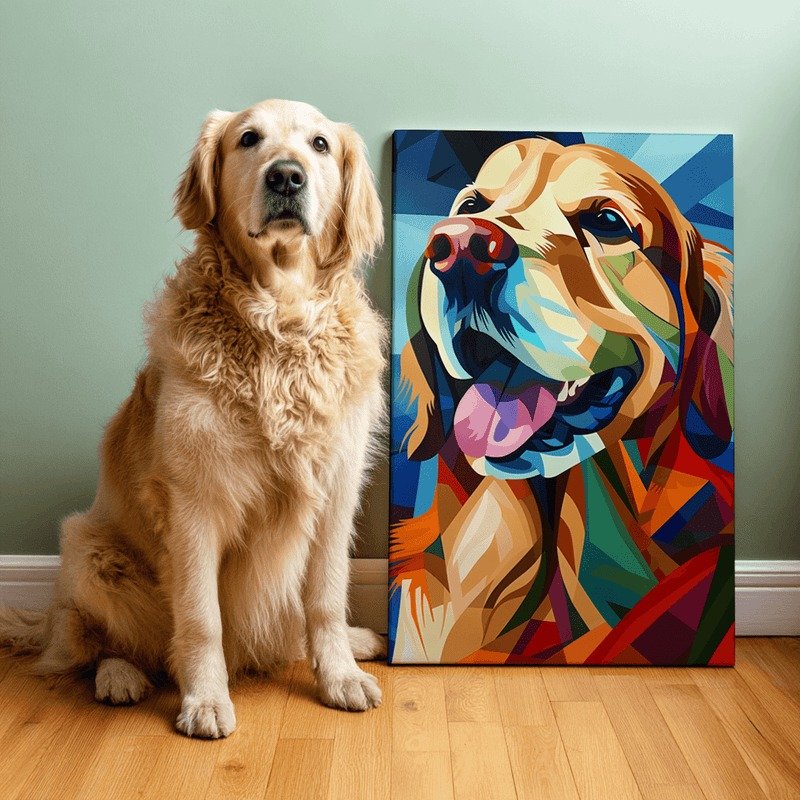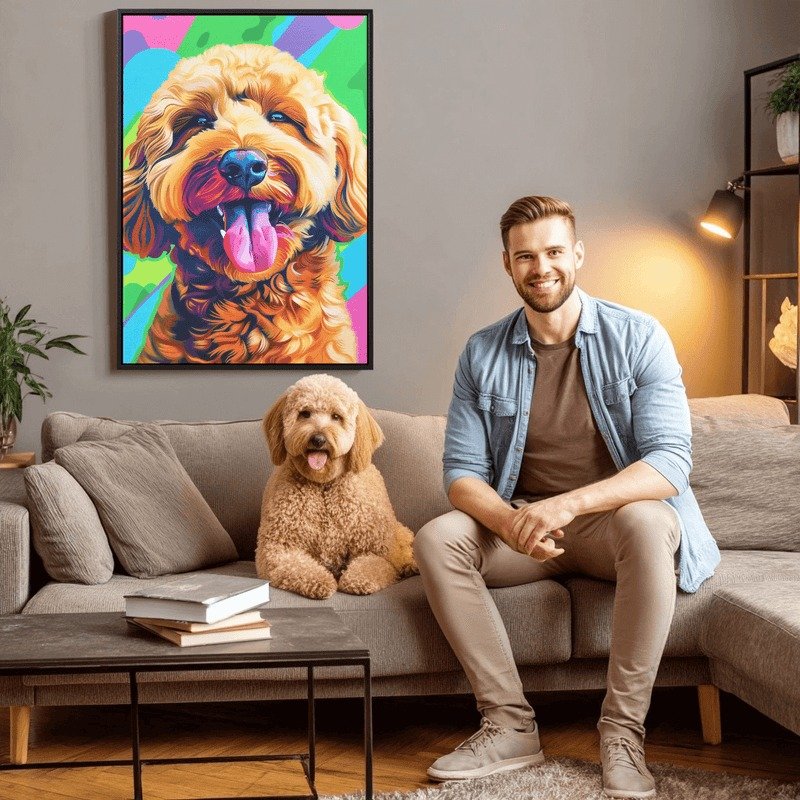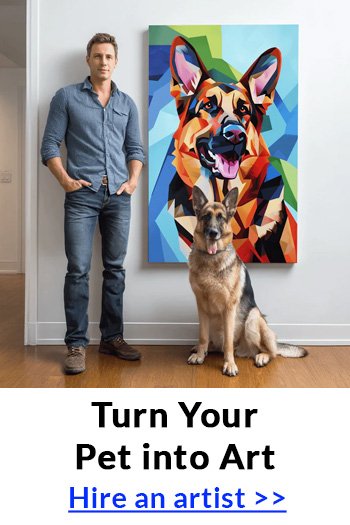
For many of us, our pets are members of our families, and any signs that your dog doesn’t like you would be heart-wrenching. We take pride in their loyalty, affection, and playful nature. But what happens when your canine companion doesn’t seem to reciprocate the love?
In some cases, dogs may show signs of dislike toward their owners, which can be a worrying and heartbreaking experience for any pet lover. Other times, they don’t dislike you at all and just need some time alone in their resting place. Just like humans, dogs need some personal space in their crates or soothing dog beds.
In this article, we’ll explore ten signs that suggest your dog doesn’t like you, and we’ll provide some insights and tips to help you navigate this situation.
Table of Contents
So, What Are Some of The Signs Your Dog Doesn’t Like You
Dogs exhibit behaviors like fearfulness, avoidance, and display body language, like avoiding eye contact, lip licking, yawning, or showing teeth if they don’t like someone. Some dogs may act aggressively around the people they don’t like, although that can sometimes be out of fear. Most dogs love people, but some can display antisocial behavior.
10 Common Signs That Say a Dog Doesn’t Like You

The first step in addressing your dog’s dislike towards you is to understand their behavior better. Dogs communicate mainly through body language, vocalizations, and actions; as their owners, it is essential to pay attention to these cues. A dog that doesn’t like its owner may display various signals, and it’s important to recognize them and take appropriate measures.
Most people know the signs that dogs love them as their favorite person. These signs include uncontainable excitement at your arrival and or even pushing their bum towards you.
Before we get into how to know if a dog doesn’t like you, please remember that there are many reasons dogs may not like people, and it does not mean you are a bad person. Some dogs only like specific people, some dogs don’t like people at all, and some dogs simply don’t trust strangers or aren’t socialized. Many dogs had prior bad experiences with humans and no longer trust them. Other dogs just don’t like having their space invaded or they may see you as a rival for the attention of their favorite person.
This means that it’s just not always true that dogs don’t like somebody because they are a “bad” person.
However, how do you know that your dog doesn’t really appreciate being around you too much? Here are ten signs:
1. Body Language Cues That Show A Dog Doesn’t Like you
Dogs use their body language to show how they’re feeling. Signs that your dog might not like you, trust you, or does not feel comfortable around you include:
- Tail between the legs;
- Raised hackles;
- Avoiding eye contact;
- Avoiding physical contact;
- Showing teeth;
- Or even growling or barking aggressively toward you;
- Violent shaking, tremors, or vibrating;
- Unable to move or sudden freezing;
- Stiffening body;
- Dogs who go silent (you can hear breathing or grunts followed by silence);
- Moving or leaning away from you; and
- Lip licking or stress yawns.
Sometimes these body language cues can indicate fear. This video shows a dog with these signs, and that was even paralyzed out of fear until he met his mom:
Reading a dog’s body language correctly can mean the difference between a good interaction and bite. The video below discusses some common body language cues that are not always as positive as we may think.
In fact, not even a tail wag necessarily means that a dog likes you. Five by Five Dog Trainer from Connecticut, Bronagh Daily describes many subtle body signs that a dog may not want to be touched.
Further, in our article on why dog’s kiss our noses, we address something called the “kiss and dismiss” behavior a dog may give when they’re politely asking to be left alone.
If your dog displays any of these signs, it’s best to tread cautiously and figure out the root cause of their behavior. Research[1] has shown that understanding body language not only keeps your pooch comfortable but also makes interactions safer.
A dog that is in pain due to an injury or illness might also exhibit these signals, so it’s essential to rule out medical issues before deciding your dog doesn’t like you.
Also, some behaviors commonly associated with happiness can indicate discomfort. For example, a wagging dog doesn’t necessarily mean they’re happy, especially if they have other signs like pinned ears and stiffness.
2. Increased Vocalization
Aside from body language, dogs use vocalizations to communicate. If your dog doesn’t like you, it might whine, growl, or bark in a tone that indicates discomfort or aggression. In particular, low growls and snarls are a sign to move aways. These are warnings that a dog is willing to escalate their discomfort to nipping, biting, or attacking.
Excessive vocalization may also indicate that your dog is unhappy with your presence and could be why your dog keeps barking at nothing.
I**t’s essential to pay attention to the tone and pitch of your dog’s vocalizations. For example, a high-pitched bark might indicate excitement, while a low-pitched growl might indicate aggression.**Understanding these vocal cues can help you better understand your dog’s behavior and address any issues they may have with you.
3. Aggression and Fear Towards The Person
Aggression may be the most alarming sign of a dog’s dislike towards its owner. A dog that doesn’t like you (or trust you) might snap, bite, or attack you out of fear or anger. Studies[2] have proved time and again that most aggressive dogs are just scared or deeply insecure. So, the circumstances are to blame, not the dog. However, truly aggressive dogs do exist. A stiff posture in your presence is also a sign that your dog feels threatened or insecure.
A dog that growls or snaps at you might be trying to communicate that it’s uncomfortable with your presence. This behavior is often a warning sign before a bite, and paying attention to it is essential. Growling and snapping might be caused by previous negative experiences, unfamiliar environments, or pain.
What it means when a dog tends to snap, nip, bite, or lunge when you approach is that in the past, the dog likely tried to use more subtle cues to show they were uncomfortable. But when people ignore these subtle cues, the dog eventually resorts to biting as a way to force you to give them the space they want.

Turn Your Pet's Photo Into Canvas Art
Upload a favorite photo and our artists craft a custom portrait in your choice of style - Abstract, Cubism, Pop Art, Whimsical, Gravity, Picasso and more. Unlimited revisions until you love it.
Shop Now 👉Perfect Portrait Guarantee • Unlimited Revisions
4. Tracking Your Movement, Hard Stares, and Hiding
When your dog avoids you or hides, it could indicate that they prefer to be alone than in your company. They start by tracking your every move so that they know the exact time to run away when you approach.
Take note of any dog that is staring at you, even if they are not doing anything except staring. In dog communication[3], there is a big difference between a “hard stare” and a “soft stare”. A hard, tense gaze means the dog is aggressive. The dog’s brow may be wrinkled. Seeing the whites of a dog’s eye or a “side eye” or whale eye is also a strong sign that a dog is not comfortable with someone.
This behavior could be caused by a lack of trust, fear of punishment, previous abuse, or a sign of aggression. You must approach your dog gently and let them approach you in their own time. Forcing your attention on them could cause more stress and signal that you are not a safe presence.
5. Your Dog Doesn’t Want to Be Touched
Not cuddling or nuzzling, avoiding physical contact, and avoiding being petted are signs of a lack of affection in dogs. Most dogs love cuddling or some sort of physical contact with their hoomans.
However, if your dog doesn’t like you, they might avoid physical contact altogether, often walking right past you without engaging. This can be heartbreaking for pet owners who enjoy snuggling with their furry friends.
There could be several reasons why your dog is not cuddling or nuzzling with you. They might be feeling anxious or stressed or have experienced a traumatic event that has affected their behavior. Observing your dog’s behavior and seeking professional help if you notice any significant changes in their behavior is crucial.
6. Ignoring Your Presence
If your dog is unresponsive or indifferent towards you, it might be time to give them more space or seek behavior therapy. Ignoring your presence might suggest that your dog has less interest in its owner or feels threatened by your company. This behavior can result from several factors, such as a lack of socialization, fear, or anxiety.
Avoidance or a lack of engagement in a dog toward their owner is often a sign that bonding hasn’t properly occurred, or there are trust and communication issues at play.
It is essential to understand that dogs are social animals and require adequate socialization to develop healthy relationships with their owners. If your dog is not responding to your calls or commands, enroll them in obedience training classes. These classes can help your dog become more responsive to your commands and develop a stronger bond.
7. Destructive Behavior
Destructive behavior is a delicate sign because it’s multifactorial. Dogs are not malicious and manipulative creatures. Therefore, they can’t destroy your stuff out of pure spite just because they don’t like you.
However, dogs that chew on your belongings or leave messes around the house may be expressing anxiety due to triggers like their owners. This means that the negative feelings of panic and frustration drive them to destroy stuff as they try to self-soothe. This is opposed to doing it because they hate their owners and want that person to know.
It’s important to note that destructive behavior like chewing your belongings can also be caused by other factors such as boredom, lack of exercise, or medical issues.
Even if dogs aren’t intentionally malicious, keep in mind that they are capable of carrying a grudge[4].
Does Inappropriate Elimination (peeing or pooping inside) Mean Your Dog Hates You?
Another behavior that people commonly misinterpreted as your dog hating you is peeing and pooping in the house. However, as we’ve stated above, it’s important to remember that dogs can’t be manipulative or malicious.
Therefore, peeing or pooping in the house simply means that your dog is:
- Stressed, as in episodes of separation anxiety;
- Scent marking;
- Not properly house trained;
- Showing severe displacement behavior as part of an underlying behavioral issue; and
- Not given access to go outside in time to potty.
8. Disobedience and Stubbornness, Such as Not Obeying Commands
Dogs that don’t like their owners might also exhibit disobedience or stubbornness. These behaviors could be frustrating, and addressing them is essential before they escalate into aggression or destructive tendencies.
If your dog doesn’t respond to your commands, it can be a frustrating experience. It’s essential to understand that disobedience could be a sign of underlying issues that must be addressed. For example, a dog that has been punished in the past after coming to you may ignore you when you try to call them in future.
Dogs that don’t like their owners might be reluctant to follow their commands because obedience is founded on bonding and trust.

Choose From Multiple Artistic Styles
Bold color pop, modern geometric, playful whimsy or clean contemporary looks. Pick the vibe, preview in 1–2 days, request tweaks until it's exactly right.
Shop Now 👉Perfect Portrait Guarantee • Unlimited Revisions
9. Refusing to Play or Interact
Another sign that your dog might not like you is when it refuses to play or interact with you. Dogs that prefer to be alone instead of playing with their owners might be expressing their displeasure with their presence. This behavior could be due to a lack of trust or fear.
10. They Refuse Food From You
Dogs value their food, so refusing to take treats or food for you is a clear sign that they don’t like you. They may only eat when you drop the food and leave because they feel more comfortable.
What Exactly Makes a Dog Not Like You?

Most times, a dog not liking you is due to negative associations in the past. This may mean you constantly punished them by yelling or hitting them, making them associate you with pain. Recent studies[5] have shown that punishing your dog can actually make them a pessimist or learn to expect the worst from interactions with you.
Other times a dog may not like someone because they stress their loved one out. Research has shown that dogs can smell your tension or stress, and they can certainly pick up on negative energy. This means that causing stress to their owner can make a dog dislike you.
Some dogs may not like you because you are a stranger, or they see you as a rival who isn’t welcome in their home. For example, many dogs may not like your new boyfriend or girlfriends because you steal attention away from them.
Research[6] also shows that some dogs tend to be more afraid of men than women. Other dogs aren’t well socialized with people.
Other times, some dogs are less affectionate than others. These dogs will engage in less physically engaging behaviors like cuddling or petting, even though they don’t dislike you. Watching your dog’s body language will let you know whether a dog is intimidated by you or is just not as affectionate.
What Can You Do if a Dog Doesn’t Like You?
- Spend more quality time with them, like playing games.
- Train them with treats and positive reinforcement instead of punishment.
- Understand your dog and how affectionate they are.
- Be patient with them until they warm up to you, especially for rescue dogs.
- Take them out for more walks if they are comfortable with it to build trust through consistency.
- Don’t try to force interaction.
- Seek professional help from a behaviorist if you can or must.
- Have veterinarian examine your dog to look for any underlying health problems that may cause behavioral issues.
Most importantly, don’t give up on your dog. With time and patience, dogs can be nursed back to safety and comfort, like this dog whose trust was rebuilt with the help of a behaviorist.
Frequently Asked Questions (FAQs)

Make Your Pet The Centerpiece
Professionally rendered canvas transforms everyday snapshots into heirloom-quality wall art that celebrates personality and presence. Ready to hang.
Shop Now 👉Perfect Portrait Guarantee • Unlimited Revisions
How Can I Know If My Dog Is Mad at Me?
Your dog may avoid you if they’re mad at you. Here, your dog typically enjoys your company but suddenly becomes distant. Additionally, pay attention to your dog’s body language, like pinned ears, a stiff posture, raised hackles, or a tightly closed mouth can all indicate frustration or anger.
What Are Some Signs That Your Dog is Scared of You?
If your dog is scared of you, they have signs like trembling in your presence, tucking their tail tightly, or flattening their ears. Avoidance behavior, where your dog actively tries to evade you or hide, is another prominent sign of fear.
Why Doesn’t My Dog Want to Cuddle?
If your dog doesn’t want to cuddle, it means they have a lower tolerance for that physical interaction. All dogs are different, meaning that some dogs will want to cuddle while others won’t. Your dog can also suddenly refuse to cuddle if they previously liked it because they’re anxious or scared.
What Are Some of the Signs That Your Dog Doesn’t Respect You?
Common signs your dog doesn’t respect you include disobeying commands, resource-guarding, and aggression around their food. However, a dog not respecting you is much more nuanced because, most times, it’s a matter of training than disrespect. For example, a dog not listening to your commands may mean they haven’t received enough obedience training. Other times, dogs fail to obey commands when they haven’t bonded with that person.
Final Thoughts
If you notice any of the signs mentioned above in your canine companion, it’s time to take stock of your relationship and make some changes. Some causes of dislike may be easy to remedy, while others may require patience, professional advice, or acceptance that you and your furry friend are not compatible. Once you’ve rebuilt your bond, celebrate it with a custom portrait to commemorate your journey together.
References
- Better understanding of dog body language could make interactions safer. Sciencedaily. http://sciencedaily.com/releases/2018/12/181220104619.htm
- Dogs' aggressive behavior towards humans is often caused by fear. Sciencedaily. http://sciencedaily.com/releases/2021/05/210503104801.htm
- Communication in Dogs. Mdpi. https://www.mdpi.com/2076-2615/8/8/131
- Do Dogs Hold Grudges?. Psychologytoday. https://www.psychologytoday.com/za/blog/animal-emotions/201904/do-dogs-hold-grudges
- Dogs are more pessimistic if their owners use two or more aversive training methods. PMC. http://ncbi.nlm.nih.gov/pmc/articles/PMC8463679/
- Why Dogs are More Afraid of Men, Revisited - The Other End of the Leash. Patriciamcconnell. http://patriciamcconnell.com/theotherendoftheleash/why-dogs-are-more-afraid-of-men-revisited







